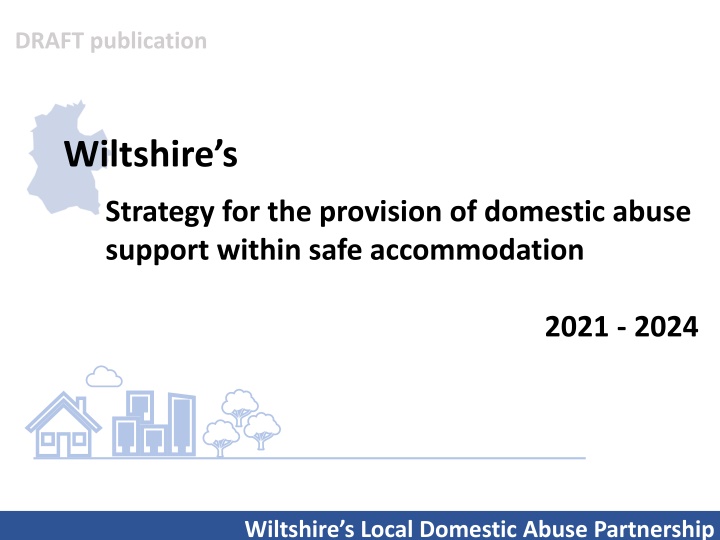Spring 2021 Coaches Meeting Agenda
The Spring 2021 Coaches Meeting covered a variety of important topics including COVID-19 guidelines, season overview and dates, facial coverings requirements, spectator rules, and best practices for practices and games. Coaches and participants were briefed on key information and protocols to ensure a safe and successful soccer season.
Uploaded on Feb 25, 2025 | 0 Views
Download Presentation

Please find below an Image/Link to download the presentation.
The content on the website is provided AS IS for your information and personal use only. It may not be sold, licensed, or shared on other websites without obtaining consent from the author.If you encounter any issues during the download, it is possible that the publisher has removed the file from their server.
You are allowed to download the files provided on this website for personal or commercial use, subject to the condition that they are used lawfully. All files are the property of their respective owners.
The content on the website is provided AS IS for your information and personal use only. It may not be sold, licensed, or shared on other websites without obtaining consent from the author.
E N D
Presentation Transcript
DRAFT publication Wiltshire s Strategy for the provision of domestic abuse support within safe accommodation 2021 - 2024 Wiltshire s Local Domestic Abuse Partnership
Contents Introduction .03 Defining domestic abuse ..04 Domestic Abuse Act 2021 .05 Local domestic abuse partnership board 06 Domestic abuse support in safe accommodation 07-08 Wiltshire s safe accommodation needs and gap analysis ..09-12 Our ambitions 13 Delivery and Outcomes .. 14
Introduction Safe supported accommodation provides an opportunity for victims of domestic abuse and their families to escape the abuse they are experiencing and have a chance to live a life free from fear and abuse. Domestic abuse can, and does, happen to anyone. It is indiscriminate of age, gender, race, profession or social background. In the UK around one in four women and one in six men will be affected by domestic abuse in their lifetime, and the NSPCC reports that around one in five children have been exposed to domestic abuse. Domestic abuse is one of the leading causes of homelessness for adult and child victims-survivors. The SafeLives Insights data showed 22% of people accessing support from a domestic abuse service were living with a perpetrator at the time they entered a service. Although it remains a far higher number who will have their accommodation destabilised as a result of abuse. Supported accommodation is one part of the range of support offers and help that as a partnership we can provide victims and their families access to. Ensuring access to the right support, at the right time will help keep victims safe and help increase resilience to live free from all forms of abuse. As included in the partnerships over arching domestic abuse strategy, Wiltshire s vision is to: Reduce the prevalence of domestic abuse, and ensure where is does take place, all those affected have access to the right support, at the right time. The introduction of the new Domestic Abuse Act 2021 is an integral piece of legislation that will help to protect and safeguard those impacted by domestic abuse. Wiltshire s strategy for the provision of support within safe accommodation, will outline how together the partnership will work collaboratively to provide victims and their families who have been impacted by domestic abuse a range of options to remain safe at home or access suitable alternative safe accommodation and support. This work seeks to compliment existing work taking place across the county to address health and wellbeing, community safety and housing needs of those who are experiencing domestic abuse in Wiltshire. Wiltshire s domestic abuse support within safe accommodation
Defining domestic abuse This strategy adopts the Government definition of domestic abuse as: Domestic abuse happens across different types of relationships and is not limited to people who are or have been in an intimate personal relationship. Domestic abuse may happen across household relationships including against or by carers, or between family members over the age of 16. Any incident or pattern of incidents of controlling, coercive or threatening behaviour, violence or abuse between those aged 16 or over who are or have been intimate partners or family members regardless of gender or sexuality . In the case of adolescent to parent violence, domestic abuse occurs when both parties are over the age of 16, however the government recognises that adolescent to parent violence can involve children under 1614 Domestic abuse includes: physical or sexual Abuse violent or threatening behaviour controlling or coercive behaviour Such as threats, humiliation , intimidation or other abuse that is used to harm, punish, or frighten, or acts designed to make a person feel subordinate, dependent or isolated Defined as a behaviour which has substantial adverse effects on a person s ability to acquire, use or maintain money, other property or obtain goods or services economic abuse psychological, emotional or other abuse Defining domestic abuse
Domestic Abuse Act 2021 The Domestic Abuse 2021 Act aims to: Protect and support victims to enhance the safety of victims and the support they receive; Transform the justice process to provide support to victims throughout the justice process and an effective response to perpetrators to end the cycle of abuse; Improve performance to drive consistency and better performance in the response to domestic abuse; and Promote awareness put domestic abuse at the top of everybody's agenda. Part IV of the Domestic Abuse Act 2021 Places a duty on Tier One Local Authorities such as Wiltshire Council to: Assess the need for support and prepare strategies to provide support for victims and their children [who need to reside] in relevant accommodation. The Act places a duty on each Tier One local authority in England to: I. Appoint a multi-agency Domestic Abuse Local Partnership Board (LPB) which it must consult as it performs certain specified functions (below). In Wiltshire, the Domestic Abuse Sub group of the Community Safety Partnership (CSP) has adopted the role and functions of the LPB. II. Assess, or make arrangements for the assessment of, the need for domestic abuse support in their area for all victims (and their children) who reside in relevant safe accommodation, including those who come from outside of their area. III. Prepare and publish a strategy for the provision of such support to cover their area having regard to the needs assessment. IV.Give effect to the strategy (through commissioning / de-commissioning decisions). V. Monitor and evaluate the effectiveness of the strategy. VI.Report back annually to central government. Wiltshire s domestic abuse support within safe accommodation
Local domestic abuse partnership board Wiltshire s response to tackling domestic abuse has a strong history of collaborative working; it has a well-established Domestic Abuse Partnership. Wiltshire s Domestic Abuse sub group, which reports to the Wiltshire Community Safety Partnership has taken the role and responsibilities required under the new Act and is the Wiltshire Local Domestic Partnership Board (LPB). Wider strategic context This strategy should be read in conjunction with Wiltshire s domestic abuse strategy and not viewed in isolation. Wiltshire s response to domestic abuse is a system s response and the work to ensure the provision of domestic abuse support in our safe accommodation is one part of this response. It seeks to draw upon those inter-connecting national agendas e.g. Violence Against Women and Girls and the Criminal Justice system wide response to victims and witnesses. As well as incorporate the local organisational drivers including Wiltshire Criminal Justice Board s Victim s Strategy, the Police and Crime Plan, as well as the wider partnership approaches and activity, which together will contribute towards our local response to domestic abuse. Bringing together information from across our partnership is vital as it enables us to see the whole picture in relation to local needs, demands, the provision of services and can identify any gaps. Wiltshire s Local Domestic Abuse Partnership
Domestic abuse support in safe accommodation The Act 2021 introduces a new Safe Accommodation duty for tier 1 local authorities. Assess the need for support and prepare strategies to provide support for victims and their children [who need to reside] in relevant accommodation This duty under the Act, is separate to local authority housing duties under the Housing Act 1996 and Homelessness Act 2002. The Act does not place a requirement on authorities to provide domestic abuse victims with accommodation. Funding Safe accommodation is defined in the statutory guidance as: Wiltshire received funding for 2021/22 by the Department for Levelling Up, Housing and Communities (DLUHC) to carry out its duties under the Act. Refuges (including those that provide dedicated specialist support, such as specialist refuges for Black or minority ethnic, LGBT+, and disabled survivors); The funding will be used to commission services and specialist support to meet the local needs as identified through the gap and needs analysis. It seeks to further strengthen the local domestic abuse support offers available across Wiltshire s safe accommodation. Dispersed / semi-independent / move-on and emergency accommodation with the same level of specialist DA support as provided within a refuge; and, Sanctuary schemes, which provide enhanced physical security measures within a home. DLUHC has committed to providing a three-year settlement for the delivery of the Safe Accommodation duty. Future years funding has yet to be allocated by Government Wiltshire s domestic abuse support within safe accommodation
Domestic abuse support in safe accommodation Support includes: The statutory guidance describes domestic abuse support within safe/relevant accommodation as: Overall management of services within relevant accommodation including, the management of staff, payroll, financial and day to day management of services and maintaining relationships with the local authority (such functions will often be undertaken by a Service Manager) Support with the day-today running of the service, for example scheduling times for counselling sessions, group activities (such functions may often be undertaken by administrative or office staff) Advocacy support development of personal safety plans, liaison with other services (for example, GPs and Social Workers, welfare benefit providers); Domestic abuse prevention advice support to assist victims to recognise the signs of abusive relationships, to help them remain safe (including online), and to prevent re-victimisation. Specialist support for victims o Designed specifically for victims with relevant protected characteristics (also known as by and for), such as faith services, translators and interpreters within BAME-led refuges, immigration advice, interpreters for victims identifying as deaf and / or hard of hearing, and dedicated support for LGBTQ+ victims [not limited to]. o Designed specifically for victims with unique and / or complex needs such as, mental health advice and support, drug and alcohol advice and support, including sign posting accordingly Children s support including play therapy and child advocacy. Housing-related support providing housing-related advice and support, for example, securing a permanent home, rights to existing accommodation and advice on how to live safely and independently. Advice service financial and legal support, including accessing benefits, support into work and establishing independent financial arrangements; and, Counselling and therapy (including group support) for both adults and children, including emotional support. Wiltshire s domestic abuse support within safe accommodation
Wiltshires DA support in safe accommodation needs and gap analysis Wiltshire s accommodation need and mapping exercise Summary of domestic abuse in Wiltshire An estimated 19,350 adults impacted by DA in 2019/20 (based on extrapolated national data from the Crime Survey for England and Wales) approximately 13,000 women and 6,350 men In 2020/21, Wiltshire s domestic abuse support service provided short- term, long-term support or refuge/place of safety accommodation to 2,073 victims in Wiltshire. Around 10.7% of the estimated need for DA support was met through commissioned support services. Since 2018, referrals into local support services and reports to the police have reported an upward trend. Number of victims in receipt of refuge or place of safety accommodation in Wiltshire in 2020/21 was 71. 20% of all people referred were offered a place. Most frequent reason for not receiving a service include declined due to assessment reasons and victim changed their mind Around 2/3 of people accepted into safe accommodation in Wiltshire are from outside of Wiltshire Majority of people accommodated in safe accommodation are female. 52 (of 71 accommodated) declared a sexual orientation; all but 2 described themselves as heterosexual/straight, 2 were bi-sexual. 49% (35 out of 71 accommodated) declared a form of disability. Family structure of those accessing safe accommodation in Wiltshire includes: 49% adults with no children 27% adults with one child 11% adults had two children and; 13% adults had 3 or more children 45 (of 71 accommodated) presented with complex needs In 2020/21 169 households presenting as homeless due to fleeing DA Wiltshire commissioned an independent review to support a better understanding of the local needs and support available for victims and families impacted by domestic abuse in safe accommodation. The findings have been used to underpin the work contained in this strategy and set a framework to support how the grant funding can best be utilised to further strengthen the local offer of support. The report builds on quantitative data from the health needs assessment, as well as incorporates the findings from a range of additional activities, including: 17 Stakeholder interviews with representatives of service providers, referral agencies and other key professionals. A confidential survey completed by 12 current and recent service users of safe accommodation. 5 confidential one to one online or phone interviews with service users. A rapid research review of relevant studies and policy documents as well as an online search of details for Wiltshire s comparator practices and any potential models which might be adopted. authorities to identify their Wiltshire s domestic abuse support within safe accommodation
Wiltshires DA support in safe accommodation needs and gap analysis Findings: Need v s Services Difficulty experienced in current service configuration to accommodate male victims including older male children. Lack of evidence from LGBTQ communities making use of safe accommodation; and these groups are only represented in small numbers in the commissioned DA support service overall, indicating more work needs to be done to understand their limited presence. Whilst current refuge provision is capable of accommodating people with physical disability, the capacity is limited and some of the units are completely inaccessible for those victims. Victims with complex needs coming into safe accommodation is high and has been rising over the past three years. Available data on age , alongside the opinions of stakeholders suggest there may be an increase in older people being referred to the commissioned DA support service and therefore possibly seeking refuge. Increases in Wiltshire population because of Army rebasing will have implications for future provision and liaison with military services needs to be developed as a priority. This is already in progress. Findings: support for moving on The local picture about access to housing was generally positive; although several service users felt that the level of follow up work provided after leaving the refuge was too limited. Lack of finance to support moving into accommodation was a difficulty for some, and the flexible funding budget suggested in the Whole Housing good practice example from Cambridgeshire may be a helpful model. Wiltshire s domestic abuse support within safe accommodation
Wiltshires DA support in safe accommodation needs and gap analysis Findings: sufficient, quality and suitability of current safe accommodation Wiltshire currently supports a high level of units of refuge/places of safety accommodation compared with elsewhere in the UK. Although there is provision in all quadrants of the county and a mix of shared and self-contained accommodation, the balance needs to shift away from shared provision. Service users strongly valued the care and commitment of refuge staff and were generally positive about their services; some concerns expressed about both group living and the need for repairs and decoration in some units. Consider developing more dispersed housing with floating or peripatetic support to provide more flexibility and address some of the gaps relating to gender, disability, and sexual orientation. They may also enable more victims to sustain employment and community links. Data suggests at present, only one third of refuge places are occupied by Wiltshire victims. Refuge accommodation remains important but may best concentrate on people with complex needs, who already form a substantial proportion of those in refuges. Comparator examples suggest that a wider range of types of accommodation would be helpful. Findings: inter-agency working Inter-agency working was viewed positively both by providers and other agency stakeholders; there were opportunities identified to further strengthen the response. Explore opportunities to develop work with children in refuge settings given the level of trauma and dislocation which children are often experiencing. Earlier access to mental health services, particularly given the high level of mental ill health within the safe accommodation population. Wiltshire s domestic abuse support within safe accommodation
Wiltshires DA support in safe accommodation needs and gap analysis The recommendations from the need s assessment include: 1. The Local Partnership Board (LPB) should create an approach that enables people who have been affected by domestic abuse, and the community to shape provision and the local response. 2. LPB should work to balance the system between prevention, perpetrator offer and reactive services. 3. LPB should consider a whole-housing approach model in terms of overall safe accommodation strategy. 4. LPB should consider implementing a sanctuary scheme initiative and explore removal of perpetrators from the home. 5. LPB should consider the complex needs of victims accessing safe accommodation. In particular those with mental health issues, a disability and children and young people. 6. LPB to explore ways of raising awareness of safe accommodation options to potential hidden groups of victims (men, older people, LGBTQ and the military). 7. LPB should consider diversity and explore ways of creating an inclusive environment. 8. LPB to consider long-term support for victims and children when they have moved-on from safe accommodation. 9. LPB should consider the impact of COVID. 10. Commissioners should work together to design services/ systems/strategies and seek joint commissioning opportunities. 11. LPB to explore gaps in intelligence and consider ways of improving evidence- base for future assessments and strategies. This strategy has used a collaboration of sources from across the partnership, reflecting individual organisational strategic drivers which have helped shape the content. A key exercise the Local Partnership Board were required to undertake as outlined in the legislation was to assess the level of need relating to support to victims of domestic abuse, including children, in domestic abuse safe accommodation. The recommendations have been highlighted and will be developed alongside future work programmes. Progress will be reviewed regularly by the Wiltshire Local Domestic Abuse Partnership Board. Wiltshire s domestic abuse support within safe accommodation
Our ambitions Themes of work Why this is important? Actions to be taken forward Focus on prevention and early intervention reduces risk of harm, prevents escalation and risk of serious harm and possible homicides. Victims and their families need to informed of how to access support earlier. DA remains a leading cause of homelessness; a preventative focus can help contribute to better outcomes for victims and families. - - - - - Promote support options to enable victims to stay safely in their own homes, include sanctuary scheme offers Utlising the new DA Act duties and powers and encourage reporting through awareness raising Encourage victims and families to access support earlier Encourage the take up of the Make a Stand pledge by housing providers in Wiltshire Using the findings from the needs and gap analysis to develop the performance metrics to have a better understanding of usage and build on the gaps identified. Early intervention and prevention Strong evidence-base of the impacts of DA on C&YP; supports a strong focus on ensuring our response to protect and safeguard our future generations is delivered. The DA Act now recognises the C&YP as a victim in their own right. Local DA needs of C&YP including safe accommodation need to be embedded into future strategic planning and commissioning. - - Ensure the provision of specialist support for C&YP who are in safe accommodation and have experienced DA Using the needs and gap analysis findings to include future C&YP support in safe accommodation is strengthened in future commissioning offers. Work with Children s Services on developing the FDAC model in Wiltshire, which includes specialist support for C&YP and families where DA is experienced and working to keep families safely in the home. Undertake awareness with the workforce of changes in DA Act, recognising the children of families experiencing DA are a victim in their own right. Needs of children and young people are understood and supported appropriately - - Embed the service-user s voice in developing and inform the local DA response The lived voice can play a vital role in our local response to DA and can be used to support change. Wiltshire are committed to involving the victims voice to support and co-produce future strategies and our DA response. - Drawing on the findings from the needs and gap analysis which collated the service users lived voice , and to facilitate further opportunities for a co-production approach to future service design Explore opportunities to engage with victims from minority communities and people who experience multiple disadvantages to understand why there is a lower uptake in support offers in Wiltshire. - Refuge and places of safety are one range of options available to victims and children fleeing DA; however it is not the sole option. Wiltshire are committed to strengthening the DA support offer, to allow victims choice. Working to keep families safe in their own homes where possible and safe to do so. Linked in with community-based support to assist in navigating pathways for additional support needs. - Review current service offer, and develop the recommendations following the needs and gap analysis; Support to consider addressing (not an exhaustive list); Male victims; Victims of HBV, Forced Marriage,& FGM and/or modern day slavery; no recourse to Public Funds; Older victims; Victims with a disability; Victims from the gypsy/traveller community; Victims who are LGBTQ+; Younger victims (16-21); Victims with drug and/or alcohol dependencies Develop options to enhance safe accommodation offers and support for victims and families with protective characteristics Using New Burdens funding to provide access to further safety resources and sanctuary options Develop further pathways of support for DA victims with multiple complex needs Explore opportunities for developing a whole-housing approach Access to a range of safe accommodation options and support, to increase safety - - - - Ensuring a good DA support offer is available to victims and their families in and out of crisis e.g. refuge/place of safety, as well as access to resettlement support to enable victims to move-on, either safely back home or a new home in their community or a community of their choice. - Support provided to victims to help their understanding of their options for permanent accommodation (be this within or outside of Wiltshire) and provide practical support to re-settle should they require it - All victims DA will have a priority need for accommodation. Domestic Abuse Act introduces a requirement for all domestic abuse victims to be automatically considered in priority need and therefore benefit from the statutory homelessness process and receive an offer of settled housing - Access to appropriate support measures to enable victims to return home safely or into new accommodation e.g. sanctuary options, legal options etc Support to return home or move on Wiltshire s domestic abuse support within safe accommodation
Delivery and Outcomes How will the strategy be delivered? How do we know we have made a difference? Victims have greater confidence to report domestic abuse incidents to the police and accessing Wiltshire s DA support services for help Wiltshire local domestic abuse partnership board will develop and implement a delivery plan; it will be reviewed quarterly and refreshed annually This work seeks to compliment the wider strategic priorities of the Wiltshire domestic abuse strategy. We will develop measures which can be used to demonstrate the impact of the work being delivered This work seeks to address current gaps; work will be commissioned to further strengthen the safe accommodation support offer in Wiltshire. Using the needs and gap analysis completed, it set a framework where Wiltshire has developed and identified how to invest the New Burdens funding on safe accommodation and the accompanying support as defined in the statutory guidance. This will be review annually. Wiltshire are committed to raise the profile and awareness of DA and the support pathways available to those in need of accessing support, in particularly around the safe accommodation offer and the new duties and powers included in the new DA Act. Wiltshire s local domestic abuse partnership board will monitor progress to deliver the strategy and report to the Wiltshire Community Safety Partnership quarterly and to the Department for Levelling Up, Housing and Communities (DLUHC) as required. Wiltshire has a suite of safe accommodation support options in place for victims and their families to access, which will support and compliment the community-based DA support offers Victims and children accessing DA support in Wiltshire, report that they feel they were listened too and they feel safer Repeat victimisation rates for victims of domestic abuse is reduced, as a result of appropriate intervention and support Wiltshire s workforce is skilled and aware of the safe accommodation support pathways Wiltshire s domestic abuse support within safe accommodation























